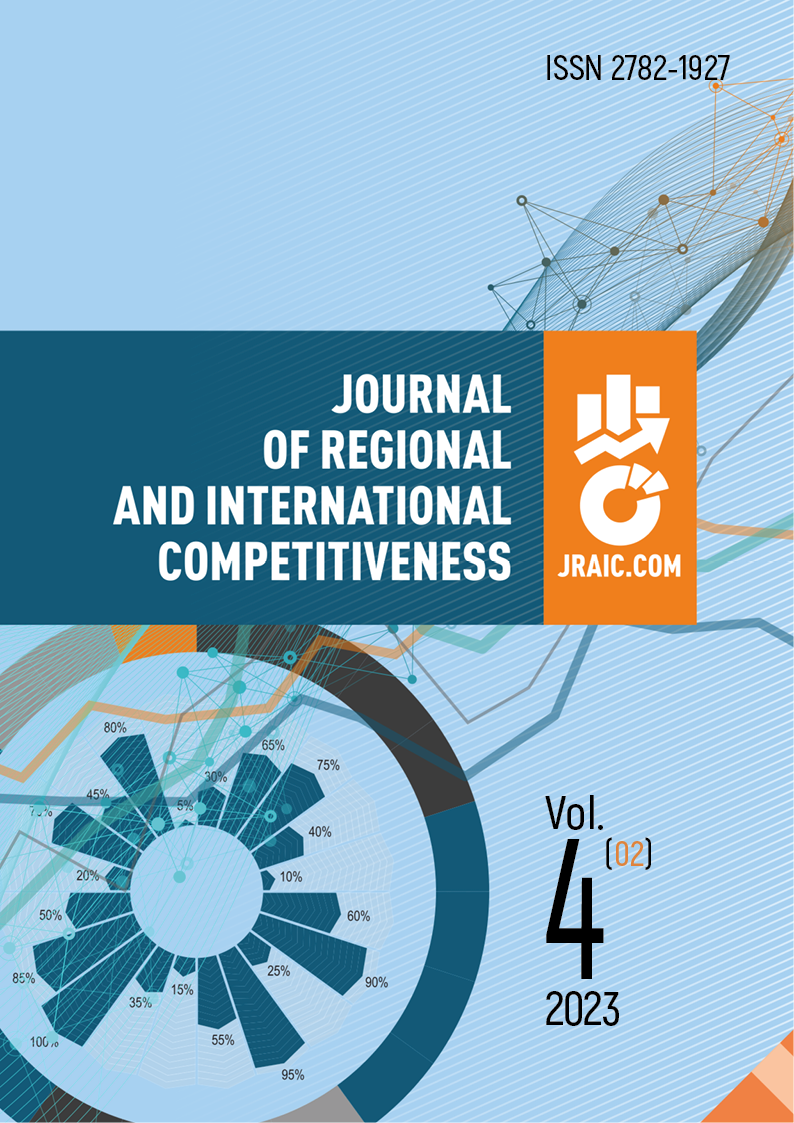ФГБОУ ДПО "ИПК"
ФГАОУ ВО «Государственный университет просвещения»
Москва, г. Москва и Московская область, Россия
The growth of average life expectancy affecting the economically active period of life is one of the key factors in the global competitiveness of the state. It determined the relevance of the presented study. The purpose of the presented studies is to analyse predictive assessments of the prospects for achieving the national goal of increasing life expectancy in Russia by 2030 up to 78 years. The research revealed the following: it is necessary to take into account the impact of cycles of social economic activity as the factors affecting life expectancy, along with the factors which traditionally considered having the significant impact on world life expectancy (bad habits, climatic and environmental conditions, exposure to chronic stress, nutritional balance, daily physical activity, health care, country economic development, etc.). The scientific novelty of the study concerns with the identification of the main factors allowing the national policy to achieve this particular goal. The practical significance of the results obtained provides the possibility of their use in improving the national policy in terms of both population and labour economics.
AVERAGE LIFE EXPECTANCY, GLOBAL COMPETITIVENESS FACTOR, RUSSIAN FEDERATION
1. Cia.gov. (2023). CIA - The World Factbook Life Expectancy. Retrieved from https:www.cia.gov/library/ publications/the-worldfactbook/rankorder/2102rank.html?countryName =Russia&countryCode=rs®ion- Code=cas&rank=161#rs (accessed 01.02.2023).
2. Numbeo. (2022). Safety Index by Country 2022. Retrieved from https://www.numbeo.com/crime/ rankings_by_country.jsp?title=2022&displayColumn=1 (accessed 01.02.2023).
3. Dvorsky, G. (1014). No, a huge human lifespan will not destroy our planet. Retrieved from https:// habr.com/ru/company/airbnb/blog/363717 (accessed 01.02.2023) (in Russian).
4. Vishnevsky, A. G. (Ed.) (2006). Demographic Modernization of Russia: 1900-2000 (The “New History” series). Moscow: Novoe izdatel’stvo (in Russian).
5. Vishnevsky, A. (2012). Demographic breakthrough or circular movement? Demoscop weekly, (535- 536). Retrieved from http://www.demoscope.ru/weekly/2012/0535/tema02.php (accessed 01.02.2023) (in Russian).
6. Rosstat. (2023). Demographics. Retrieved from https://rosstat.gov.ru›folder/12781 (accessed 01.02.2023) (in Russian).
7. THE LANCET. (2021). The WHO report for the Decade of Healthy Aging 2021-30 lays the foundation for globally comparable data on healthy aging. Retrieved from https/www.thelancet.com/journals/lanhl/article/ PIIS2666-7568(21)00002-7/fulltext (accessed 01.02.2023).
8. Egorushkin, S. (2018). Life expectancy will steadily increase, scientists say. Do we need it? Retrieved from https://kapital-rus.ru/articles/article/prodoljitelnost_jizni_budet_neuklonno_rasti_govoryat_uchenye_a_nuj- no_li_nam/ (accessed 01.02.2023) (in Russian)
9. Karpov, D. (2023). Russia’s dependence on imports of intermediate products and foreign trade shocks Retrieved from https://cbr.ru/Content/Document/File/149496/analytic_note_20230628_dip.pdf (accessed01.02.2023) (in Russian).
10. Kolesnikov, A. A. (2023). Demographic tragedy is unfolding in Russia. SVO has aggravated the crisis that began even before it began. Retrieved from https://smart-lab.ru/blog/883343.php (accessed 01.02.2023) (in Russian).
11. Korolenko A. V. (2022). The impact of mortality from coronavirus infection on the life expectancy of the population of the regions of Russia. Problemy razvitiya territorii, 26(3), 56-74 (in Russian).
12. Kravchenko, E. (2020). Trillions for longevity: how much will it cost Russia to increase life expec- tancy to 78 years by 2030. Retrieved from https://www.forbes.ru/biznes/405659-trilliony-na-dolgole- tie-vo-skolko-oboydetsya-rossii-rost-prodolzhitelnosti-zhizni-do (accessed 01.02.2023) (in Russian).
13. Lomskaya, T. (2018). How to increase life expectancy in Russia to 78 years. Retrieved from https:// www.vedomosti.ru/politics/articles/2018/05/25/770785-kak-uvelichit-prodolzhitelnost-v-rossii-78-let (ac- cessed 01.02.2023) (in Russian).
14. EVOLVELIUM. (2023). Low life expectancy: causes, consequences and solutions. Retrieved from https://evolvelium.com/zdorovie/prichiny-nizkoy-prodolzhitelnosti-zhizni/ (accessed 01.02.2023) (in Russian).
15. VisaSam. (2023). Industries of the world’s countries in the table. Retrieved from https://visasam.ru/emigration/economy/promyshlennost-stran-mira.html (accessed 01.02.2023) (in Russian).
16. Otstavnov, S. (2019). Global aging. Retrieved from https://www.kommersant.ru/doc/3952328 (accessed 01.02.2023) (in Russian).
17. World Health Organization. (2020). Decade of Healthy Aging 2020-2030. Retrieved from https://www.who.int/docs/default-source/decade-of-healthy-ageing/full-decade-proposal/decade-proposal-full- draft-ru.pdf?sfvrsn=ccd95796_8 (in Russian).
18. Indicators of cardiovascular diseases by country in 2023. Retrieved from https/worldpopulationre- view.com/country-rankings/heart-disease-rates-by-country (accessed 01.02.2023) (in Russian).
19. Statistika i pokazateli. (2023). Life expectancy according to Rosstat. Retrieved from https://rosin- fostat.ru/prodolzhitelnost-zhizni/?ysclid=l66oapv4pv493880792 (accessed 01.02.2023) (in Russian).
20. Rosstat. (2023). Industrial injuries. Retrieved from https://rosstat.gov.ru/working_conditions (ac- cessed 01.02.2023) (in Russian).
21. Tebekin, A. V. (2022a). Detailing the “vicious circle of the shadow sector” by Hernando De Soto in relation to the Russian economy. Vestnik Moskovskogo finansovo-yuridicheskogo universiteta MFUA, (4), 22- 33 (in Russian).
22. Tebekin A. V. (2020). Legalistic factors of the spread of the “gray” shadow economy in modern Russia. Vestnik Tverskogogo sudarstvennogo universiteta. Seriya: Ekonomika i upravlenie, (1), 166-176 (in Russian).
23. Tebekin, A. V. (2022b). Prospects for the development of the public sector of the economy in the conditions of overcoming the global crisis of the 2020s: global and national aspects. Teoreticheskaya ekonomi- ka, 85(1), 79-93. Retrieved from http://www.theoreticaleconomy.ru/index.php/tor/article/view/210/200 (in Russian).
24. Tebekin, A. V. (2022c). Theoretical and methodological analysis of economic reforms by E. Gaidar (part 1: prerequisites for implementation). Vestnik Tverskogo gosudarstvennogo universiteta. Seriya: Ekonomi- ka i upravlenie, (3), 237-249 (in Russian).
25. Tebekin, A. V. (2016). Management theory. Moscow: KNORUS (in Russian).
26. Tebekin, A. V., Mitropolskaya-Rodionova, N. V., & Khoreva, A. V. (2021). Assessment of the pros- pects for the implementation of strategic initiatives of socio-economic development of the Russian Federation until 2030 in terms of ensuring sustainable population growth in the Russian Federation. Zhurnal issledovanij po upravleniyu, 7(6), 3-18 (in Russian).
27. Tergesen, E. (2021). 100 years: a new life expectancy for people born in the XXI century? InoPres- sa, 26 noyabrya. Retrieved from https://www.inopressa.ru/article/17Apr2020/wsj/longevity.html (accessed 01.02.2023) (in Russian).
28. Ulumbekova, G. E. (2018). Proposals for program-targeted management to achieve a life expectancy 54of 78 years in the Russian Federation by 2024. Retrieved from https://www.vshouz.ru/journal/2018-god/pred- lozheniya-po-programmno-tselevomu-upravleniyu-dlya-dostizheniya-v-rf-ozhidaemoy-prodolzhitelnost/ (accessed 01.02.2023) (in Russian).
29. Chernyshev, E. (2017). Increasing life expectancy is a double–edged sword. Retrieved from https:// www.nakanune.ru/articles/112806/ (accessed 01.02.2023) (in Russian).
30. Suvorov, A. (2023). The number of people poisoned by the drink “Mr. Cider” exceeded 105. 36 of them died. Retrieved from https://rtvi.com/news/chislo-otravivshihsya-napitkom-mister-sidr-prevysilo-105- chelovek-iz-nih-36-pogibli/ (accessed 01.02.2023) (in Russian).



















